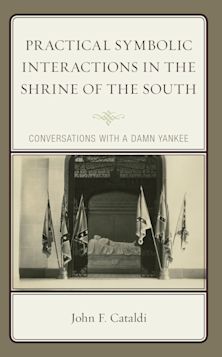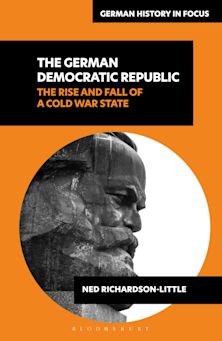The Recurrence of the End Times
Voegelin, Hegel, and the Stop-History Movements
The Recurrence of the End Times
Voegelin, Hegel, and the Stop-History Movements
This product is usually dispatched within 3 days
- Delivery and returns info
-
Free US delivery on orders $35 or over
Description
The Recurrence of the End Times: Voegelin, Hegel, and the Stop-History Movements explores the deep connection between modern political ideologies and the secular eschatological hopes and dreams of a post-Christian society. Focusing primarily upon the thought of 20th century German émigré political scientist Eric Voegelin, the book argues that we cannot understand the globalized world in which we live unless we appreciate the lasting influence of the various "End of History" speculators—specifically, G.W.F Hegel, Alexandre Kojève, and Francis Fukuyama. Through a Voegelinian lens, he dissects the relationship between these three thinkers, also claiming that while Voegelin may have misunderstood Hegel, his critiques of the Hegelian approach to history offer fresh and important perspectives on the contemporary world. This makes a forceful argument that the idea of history as a teleological path, leading toward some goal—whether perfect harmony between nations, a technocratic utopia, a return to some romanticized idyllic “state of nature,” or what Kojève and Fukuyama called the “universal and homogenous State”—has vast, and perverse, implications for the trajectory of American foreign and domestic policy.
Table of Contents
Chapter 1: The End of History, Identity Politics, and Transcendence
Chapter 2: The Origins of a Hegelian Misunderstanding
Part II: Hegel and the Crisis of Christian Salvation History
Chapter 3: Universal History Reimagined
Chapter 4: Elements of Historiogenesis
Chapter 5: Tradition-Bound Historiogenesis: Christian Historia Sacra
Chapter 6: Gnostic Historiogenesis: The Case of Hegel
Chapter 7: Historical Mankind and Historical Traditions
Part III: Intentionality and the Historical Process
Chapter 8: Voegelin on Human Consciousness
Chapter 9: Kojève's Hegel on Time and History
Chapter 10: Voegelin on the Problem of Time and the “Stop-History” Movements
Part IV: Hegel's Eclipse of Reality
Chapter 11: Hegel as Psychiatric Case Study?
Chapter 12: Voegelin and R.D. Laing on the Divided Self
Chapter 13: Does Hegel Manifest Schizoid Symptoms?
Chapter 14: Shortcomings in Laing's Theory of the Two Selves
Chapter 15: Ontological Insecurity
Product details
| Published | Feb 05 2025 |
|---|---|
| Format | Paperback |
| Edition | 1st |
| Extent | 190 |
| ISBN | 9781793651365 |
| Imprint | Lexington Books |
| Illustrations | 1 tables; |
| Dimensions | 9 x 6 inches |
| Series | Political Theory for Today |
| Publisher | Bloomsbury Publishing |
Reviews

ONLINE RESOURCES
Bloomsbury Collections
This book is available on Bloomsbury Collections where your library has access.


































